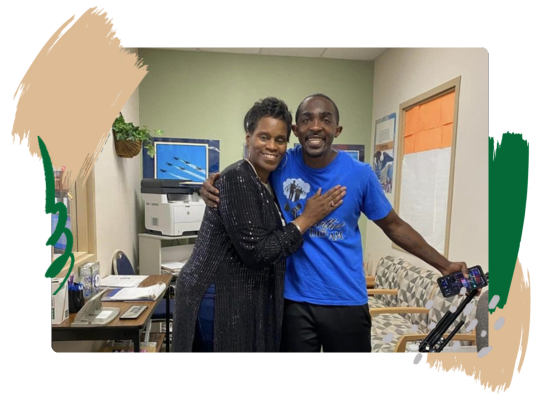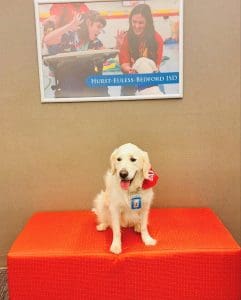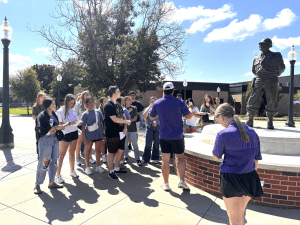
Midway ISD Celebrates Hello Week
Midway ISD pledges to observe Start With Hello Week at Hewitt Elementary! This initiative is a week-long promise that celebrates the importance of kindness and

Find Texas Schools and Independent School Districts

Lackland ISD Counselors celebrate Coffee and Counseling event.
School counselors play a vital role in helping students thrive both in and out of the classroom. In Texas public schools, counselors are certified professionals who support students’ academic achievement, emotional well-being, and long-term goals. Whether they’re helping with class schedules, managing peer conflicts, or guiding college planning, school counselors are an essential part of every student’s support team.

Dickinson ISD hosts Teen Talks to keep students motivated in alternative school.
Schools often have different types of counselors based on grade level and student needs:
From kindergarten to high school, school counselors are essential in helping students thrive. They assist learners academically, emotionally, and in planning for the future—working together with teachers and families to create a safe, supportive environment.
Counselors guide students through:
Academic development – helping them set goals, manage coursework, and build strong study habits
College and career advisement – supporting post-graduation planning, from FAFSA to college options and career paths
Social and emotional support – offering a safe space for students dealing with personal challenges, conflict, or stress
Elementary School Counselors
Focus on early emotional development, helping students learn how to identify feelings, make friends, solve problems, and build self-confidence. They often lead classroom lessons on topics like empathy, respect, and decision-making, and provide gentle support for students adjusting to school routines or family transitions.
Middle School Counselors
Help students navigate increased academic expectations and social changes. They assist with course selection, time management, and goal setting while also supporting emotional needs related to peer relationships, identity, and self-esteem. Middle school counselors often introduce early career exploration and high school readiness tools.
High School Counselors
Play a key role in preparing students for life after graduation. They help with credit tracking, college and scholarship applications, FAFSA, and career paths. They also provide support for stress, anxiety, or major life events, ensuring students stay on track academically and emotionally.
Specialized Counselors
In larger districts, students may also have access to counselors focused on specific needs—such as crisis response, mental health support, or college and career advising. These professionals often work alongside general counselors to expand services and meet the diverse needs of today’s students.
While school counselors are not licensed to diagnose conditions or prescribe medication, they are trained to recognize signs of mental health or learning challenges and refer families to qualified professionals when needed. Access to school-based mental health support has been shown to improve student outcomes—boosting attendance, reducing discipline issues, and helping students feel more connected to school.
To contact your child’s counselor, start with your school’s front office or visit your district’s counseling webpage. Counseling sessions are confidential, though exceptions may apply in situations involving student safety.

Midway ISD pledges to observe Start With Hello Week at Hewitt Elementary! This initiative is a week-long promise that celebrates the importance of kindness and

Hurst-Euless-Bedford ISD is bringing a special story to life through the publication of a children’s book about Baxter the Bobcat, Bell Manor Elementary’s beloved comfort

Eanes ISD students at Westlake High School are engaging with dogs from Divine Canines. This activity is part of their Wellness Wednesday initiative that engages

Conroe ISD hosted a dog day at Sam Houston Elementary with Dogs of Character, an organization that aims to teach the concepts of social and emotional

Crowley ISD hosted a mental health symposium, with Dr. Tommie Mabry serving as a keynote speaker. The full-day event focused on raising awareness, fostering dialogue,

By being respectful, responsible, and safe, students of Starkey Elementary School in Kerrville ISD earned enough points to participate in their first PBIS incentive. Students

Student members of the Azle ISD’s C.O.O.L. (College Offers Opportunities for Life) program at Azle High School recently embarked on an informative college tour at

The first full week of February is complete, and with that National School Counseling Week is over until next year. However, our support for the

If you want to take advantage of this benefit or learn more about how a membership can help your organization please click the button below.